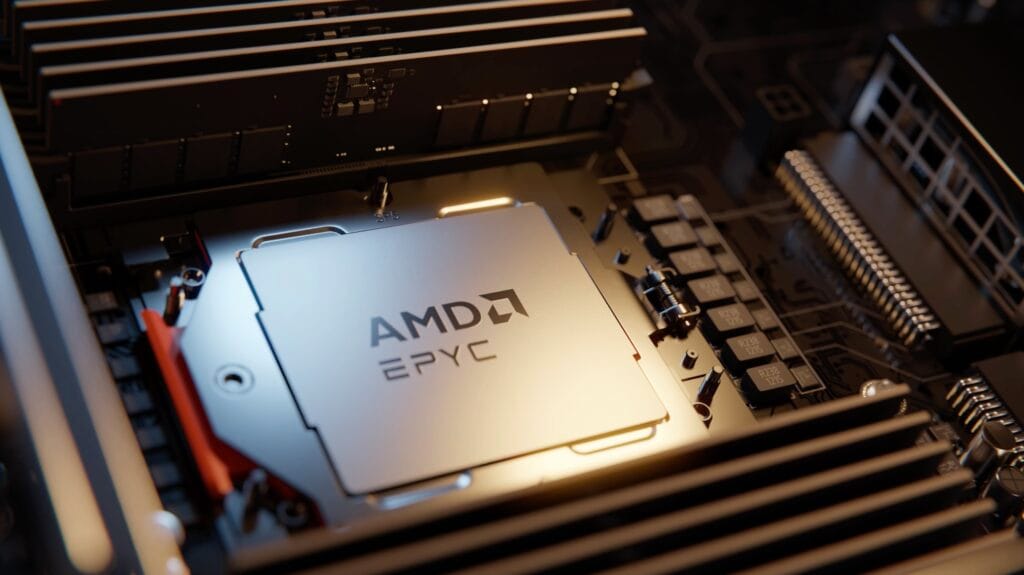In the competitive world of data center technology, AMD has achieved a significant milestone with its EPYC processors. These chips are not only transforming the landscape of computational performance, but they are also redefining the standards for the world’s most critical databases.
Widespread Dominance
AMD EPYC processors have proven their worth on multiple fronts:
- Powering the world’s most powerful supercomputer, the Frontier system at Oak Ridge National Laboratory.
- Featuring over 800 public cloud instances with all major service providers.
- Setting over 300 world records in performance and efficiency, both in on-premise and cloud environments.
Specifically in the realm of data management and analysis, AMD EPYC holds over 50 of these records, underscoring its suitability for the most critical enterprise functions.
Oracle Exadata: A New Era in Data Processing
The Oracle Exadata platform, known for its ability to handle mission-critical workloads, has taken a significant step by adopting AMD EPYC 4th generation processors (previously known as “Genoa”) in its latest X10M system. This change has enabled:
- A threefold increase in the number of cores per socket, from 32 to 96.
- The ability to handle workloads that previously required 8-socket servers with smaller and more efficient dual-socket systems.
- Improvements in data encryption and decryption performance, even surpassing data delivery speed to the chip.
- Optimization of Exadata system software for AMD EPYC’s reliability, availability, and serviceability (RAS) capabilities.
Microsoft SQL Server: Setting Benchmark Standards
In the realm of Microsoft SQL Server, AMD EPYC processors have also demonstrated their superiority:
- In the TPC-H benchmark for decision support systems, an unclustered system with a 64-core AMD EPYC processor outperforms a system with the latest 5th generation Intel Xeon 8592+ processor by 14%.
- AMD EPYC also leads in unclustered performance for 3 TB (EPYCWR-869) and 1 TB (EPYCWR-865) databases.
- For the TPC-E benchmark, which measures online transaction processing (OLTP), AMD EPYC-based systems outperform 5th generation Intel Xeon-based systems by 7%.
Industry Impact
The adoption of AMD EPYC processors by giants like Oracle and their superior performance on platforms like Microsoft SQL Server are redefining expectations in the database sector. This translates to:
- Increased speed in processing financial transactions and real-time fraud detection.
- Enhanced management capabilities of telecommunications networks, especially in the context of the growing demand for 5G networks.
- Optimization of data center resources, allowing for space and energy savings.
Collaboration and Optimization
AMD not only provides high-performance hardware, but also collaborates closely with its partners to optimize performance. In the case of Oracle Exadata, AMD worked to ensure that database performance scales linearly with a core count of up to 192 per database server.
Future Outlook
With the upcoming release of 5th generation EPYC processors, AMD is poised to further raise the bar in the server market. Meanwhile, the 4th generation EPYC continues to be the clear choice for companies seeking the best performance in their most demanding database workloads.
In conclusion, AMD has shown that its EPYC processors not only compete but surpass alternatives in the high-performance database market. For companies relying on critical data management and analysis, AMD EPYC processors stand out as the most solid and efficient option available today, offering unparalleled performance on the world’s most important database platforms.

